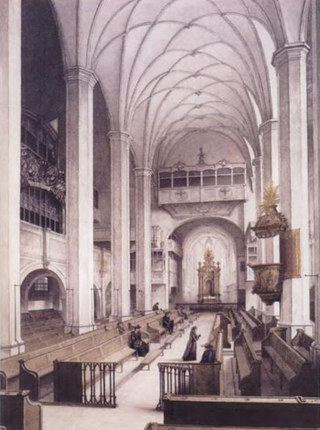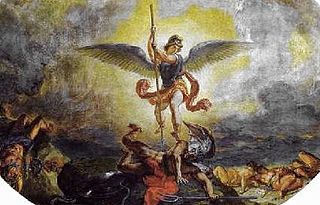
Edward Benjamin Britten, Baron Britten was an English composer, conductor, and pianist. He was a central figure of 20th-century British music, with a range of works including opera, other vocal music, orchestral and chamber pieces. His best-known works include the opera Peter Grimes (1945), the War Requiem (1962) and the orchestral showpiece The Young Person's Guide to the Orchestra (1945).

The War Requiem, Op. 66, is a large-scale setting of the Requiem composed by Benjamin Britten mostly in 1961 and completed in January 1962. The War Requiem was performed for the consecration of the new Coventry Cathedral, which was built after the original fourteenth-century structure was destroyed in a World War II bombing raid. The traditional Latin texts are interspersed, in telling juxtaposition, with extra-liturgical poems by Wilfred Owen, written during World War I.

The Aldeburgh Festival of Music and the Arts is an English arts festival devoted mainly to classical music. It takes place each June in the town of Aldeburgh, Suffolk and is centred on Snape Maltings Concert Hall.

Robert Eugene Ward was an American composer who is best remembered for his opera The Crucible (1961) after the 1953 play of the same name by Arthur Miller. He was awarded the Pulitzer Prize for Music for that opera in 1962.

Dietrich Fischer-Dieskau was a German lyric baritone and conductor of classical music. One of the most famous Lieder performers of the post-war period, he is best known as a singer of Franz Schubert's Lieder, particularly "Winterreise" of which his recordings with accompanists Gerald Moore and Jörg Demus are still critically acclaimed half a century after their release.

Saint Nicolas, Op. 42, is a cantata with music by Benjamin Britten on a text by Eric Crozier, completed in 1948. It covers the legendary life of Saint Nicholas, Bishop of Myra, Lycia, in a dramatic sequence of events. The composer wrote the work for the centenary of Lancing College in Sussex, with the resources of the institution in mind. It is scored for mixed choir, tenor soloist, four boys singers, strings, piano duet, organ and percussion. The only professionals required are the tenor soloist, a string quintet to lead the other strings, and the percussionists. Saint Nicolas is Britten's first work for amateur musicians, and it includes congregational hymns. The premiere was the opening concert of the first Aldeburgh Festival in June 1948, with Peter Pears as the soloist.

Patrick Hawes is a British composer, conductor, organist and pianist.
Daniel Felsenfeld is a composer of contemporary classical music and a writer.

Johann Sebastian Bach composed the church cantata Herr, deine Augen sehen nach dem Glauben, BWV 102 in Leipzig for the tenth Sunday after Trinity and it was first performed on 25 August 1726.

Cantata academica, Carmen basiliense, Op. 62, is a 1959 cantata by Benjamin Britten to a Latin text. It was commissioned by Paul Sacher for the quincentenary of the University of Basel. He conducted the premiere on 1 July 1960.

The Company of Heaven is a composition for soloists, speakers, choir, timpani, organ, and string orchestra by Benjamin Britten. The title refers to angels, the topic of the work, reflected in texts from the Bible and by poets. The music serves as incidental music for a mostly spoken radio feature which was first heard as a broadcast of the BBC in 1937.
Songs and Proverbs of William Blake is a song cycle composed by Benjamin Britten (1913–76) in 1965 for baritone voice and piano and published as his Op. 74. The published score states that the words were "selected by Peter Pears" from Proverbs of Hell, Auguries of Innocence and Songs of Experience by William Blake (1757–1827). It was premiered at the Aldeburgh Festival in June 1965 by the German baritone Dietrich Fischer-Dieskau (1925–2012) and the composer. The critic William Mann thought that the cycle would be judged "Britten's deepest and most subtle song-cycle"; and John Warrack wrote in The Daily Telegraph that Britten "has, I feel, here come to terms with the darkness and sense of cruelty that has always stalked his art".

Charles Clement Fussell is an American composer and conductor of contemporary classical music. He has composed six symphonies and three operas. His symphony Wilde for solo baritone and orchestra, based on the life of Oscar Wilde and premiered by the Newton Symphony Orchestra and the baritone Sanford Sylvan in 1990, was a finalist for the 1991 Pulitzer Prize for Music. He received a citation and award from the American Academy of Arts and Letters in 1992.
Joseph Phibbs is an English composer of orchestral, choral and chamber music. He has also composed for theatre, both in the UK and Japan. Since 1998 he has written regularly to commissions for Festivals, for private sponsors, and for the BBC, which has broadcast premieres of his orchestral and chamber works from the Proms and elsewhere. His works have been given premieres in Europe, the United States and the Far East, and he has received prestigious awards, including most recently a British Composer Award, and a Library of Congress Serge Koussevitzky Music Foundation Award. Many of his works have been premiered by leading international musicians, including Dame Evelyn Glennie, Esa-Pekka Salonen, Leonard Slatkin, Sakari Oramo, Vasily Petrenko, Gianandrea Noseda, and the Belcea Quartet.

Scott Gendel is an American composer, pianist, and vocal coach. Gendel is known mostly for his art songs and choral music, but has also written numerous operas and musical theatre works, as well as orchestral and chamber music.

Canticle IV: The Journey of the Magi, Op. 86, is a composition for three male solo voices and piano by Benjamin Britten, part of his series of five Canticles. It sets the text of T. S. Eliot's poem "Journey of the Magi", retelling the story of the biblical Magi. The work was premiered in June 1971 at the Aldeburgh Festival by James Bowman, Peter Pears and John Shirley-Quirk, with Britten as the pianist. It was published the following year, dedicated to the three singers.

Canticle II: Abraham and Isaac, Op. 51, is a composition for tenor, alto and piano by Benjamin Britten, part of his series of five Canticles. Commissioned to be performed as a fundraiser for the English Opera Group, it sets the story of Abraham and Isaac from the Chester Mystery Plays. Britten assigned the tenor voice of Peter Pears to Abraham, the alto of Kathleen Ferrier to Isaac, and both singers singing in homophony to the voice of God. The work was premiered on 20 January 1952 by Pears and Ferrier, with Britten as the pianist. It was published by Boosey & Hawkes in 1952, dedicated to the singers.












